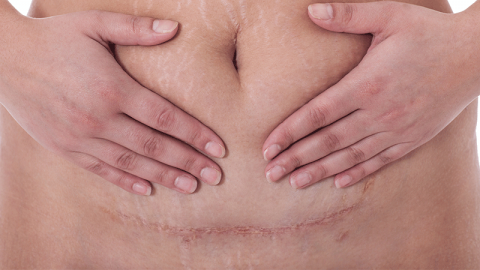Let's Have a Chat on Postpartum Sexual Health
:max_bytes(150000):strip_icc()/GettyImages-1144827480-b8c43089b7aa4ab29254c1f5f1e55128.jpg) Childbirth is a transformative experience filled with joy and anticipation, yet it also entails substantial physical and emotional adjustments. One critical area impacted by these changes is sexual health, which often does not receive the attention it deserves. Postpartum sexual health encompasses the numerous challenges and adaptations new mothers and their partners encounter during this time. This article seeks to offer a thorough overview of postpartum sexual health, discussing typical concerns and providing practical guidance for managing this significant aspect of life after having a baby.
Childbirth is a transformative experience filled with joy and anticipation, yet it also entails substantial physical and emotional adjustments. One critical area impacted by these changes is sexual health, which often does not receive the attention it deserves. Postpartum sexual health encompasses the numerous challenges and adaptations new mothers and their partners encounter during this time. This article seeks to offer a thorough overview of postpartum sexual health, discussing typical concerns and providing practical guidance for managing this significant aspect of life after having a baby.
Grasping Postpartum Sexual Health
 Postpartum sexual health refers to the physical, emotional, and psychological aspects of sexual well-being following childbirth. It encompasses a wide range of factors including the healing of the body, changes in sexual desire, emotional adjustments, and relationship dynamics. Maintaining postpartum sexual health is crucial for the overall well-being of new mothers and the intimacy of their relationships.
Postpartum sexual health refers to the physical, emotional, and psychological aspects of sexual well-being following childbirth. It encompasses a wide range of factors including the healing of the body, changes in sexual desire, emotional adjustments, and relationship dynamics. Maintaining postpartum sexual health is crucial for the overall well-being of new mothers and the intimacy of their relationships.
Healing After Vaginal Delivery
 Perineal Tears and Episiotomy
Perineal Tears and Episiotomy
During vaginal delivery, many women experience perineal tears or undergo an episiotomy, a surgical incision made to facilitate childbirth. These injuries can result in significant discomfort and pain during sexual intercourse. The healing process varies among individuals but typically spans several weeks. To alleviate discomfort during this period, it's beneficial to use water-based lubricants and approach sexual activity gradually, ensuring gentle and patient interactions.
Pelvic Floor Strength
Pregnancy and childbirth can significantly weaken the pelvic floor muscles, which play a crucial role in supporting the bladder, uterus, and bowels. This weakening can lead to problems such as urinary incontinence or diminished sensation during sex, affecting overall sexual satisfaction. To counteract these issues, healthcare providers often recommend Kegel exercises. These exercises involve repeatedly contracting and relaxing the pelvic floor muscles to enhance their strength and function. Consistent practice of Kegel exercises can improve bladder control, enhance sexual pleasure, and contribute to overall pelvic health. Additionally, physical therapy and guided pelvic floor rehabilitation programs can offer targeted support for those experiencing more severe muscle weakness.
Healing After Cesarean Section
 Scar Sensitivity
Scar Sensitivity
Recovery from a Cesarean section (C-section) involves healing from major abdominal surgery, which often results in scar sensitivity. The incision site can be tender and may cause discomfort, particularly during physical activities, including sexual intercourse. It's essential to allow adequate time for the surgical wound to heal properly. Open communication with your partner about any discomfort or pain is crucial to ensure mutual understanding and patience during this period.
Physical Activity Restrictions
After a C-section, doctors usually recommend avoiding heavy lifting and certain physical activities for a specified period, which can also impact sexual activity. Adhering to medical advice is vital for ensuring a smooth and safe recovery. This might mean delaying the resumption of sexual activity until you receive clearance from your healthcare provider. When you do resume sexual activity, consider starting with gentle, less strenuous positions to minimize discomfort and gradually reintroduce more varied activities as you heal.
Emotional and Psychological Adjustments
Hormonal Fluctuations
After childbirth, levels of hormones such as estrogen and progesterone drop significantly, which can have a direct impact on libido. The hormonal changes can cause a reduction in sexual desire. Additionally, breastfeeding plays a role in further suppressing libido. The act of breastfeeding suppresses ovulation and maintains lower levels of estrogen in the body, contributing to a decreased interest in sexual activity. These hormonal shifts are natural but can be challenging for new mothers to navigate.
Fatigue and Stress Caring for a newborn is an around-the-clock job that often leads to severe fatigue and increased stress. The demands of feeding, changing, and soothing a baby, coupled with interrupted sleep, can leave new parents feeling exhausted. This lack of sleep and the heightened stress of adjusting to new responsibilities can significantly reduce energy levels and diminish sexual desire. Managing these feelings involves prioritizing rest whenever possible, seeking support from partners or family members, and maintaining open communication about the challenges faced.
Caring for a newborn is an around-the-clock job that often leads to severe fatigue and increased stress. The demands of feeding, changing, and soothing a baby, coupled with interrupted sleep, can leave new parents feeling exhausted. This lack of sleep and the heightened stress of adjusting to new responsibilities can significantly reduce energy levels and diminish sexual desire. Managing these feelings involves prioritizing rest whenever possible, seeking support from partners or family members, and maintaining open communication about the challenges faced.
Body Image and Self-Esteem
 After childbirth, a woman's body undergoes numerous changes that can affect her self-perception and self-esteem. Weight gain, stretch marks, and changes in the appearance of the breasts are common and can be challenging to accept. These physical changes are a natural part of the postpartum period but can lead to feelings of self-consciousness or dissatisfaction with one’s body.
After childbirth, a woman's body undergoes numerous changes that can affect her self-perception and self-esteem. Weight gain, stretch marks, and changes in the appearance of the breasts are common and can be challenging to accept. These physical changes are a natural part of the postpartum period but can lead to feelings of self-consciousness or dissatisfaction with one’s body.
Self-Acceptance
Improving body image during the postpartum period involves embracing these changes and recognizing the body’s incredible ability to give birth and nurture a new life. Focusing on the positive aspects of what the body has achieved can help foster self-acceptance and improve self-esteem. Open communication with partners about these feelings is crucial, as their support and understanding can play a significant role in the adjustment process. Sharing these emotions can help build intimacy and provide the reassurance needed during this transformative time.
Exploring Relationship Interactions
Communication
 Maintaining a healthy sexual relationship postpartum requires open and honest communication between partners. It’s essential to discuss any fears, discomfort, or changes in sexual desire openly. Sharing these concerns helps both partners understand each other's experiences and provides the opportunity to offer support and reassurance. This dialogue can prevent misunderstandings and foster a deeper emotional connection.
Maintaining a healthy sexual relationship postpartum requires open and honest communication between partners. It’s essential to discuss any fears, discomfort, or changes in sexual desire openly. Sharing these concerns helps both partners understand each other's experiences and provides the opportunity to offer support and reassurance. This dialogue can prevent misunderstandings and foster a deeper emotional connection.
It's important for partners to set realistic expectations and practice patience as they adjust to the new realities of life with a newborn. Understanding that the postpartum period comes with significant physical and emotional changes can help manage expectations regarding sexual activity. Being patient with each other and recognizing that resuming a satisfying sexual relationship may take time is crucial. By working together and maintaining a supportive environment, partners can navigate this new phase with greater ease and intimacy.
Rekindling Intimacy
 Maintaining a close bond postpartum can be achieved by focusing on non-sexual forms of intimacy. Activities such as cuddling, kissing, and spending quality time together are essential for fostering emotional connection. These gestures help sustain intimacy and reinforce the emotional bond between partners, even when sexual activity might not be immediately possible or desirable.
Maintaining a close bond postpartum can be achieved by focusing on non-sexual forms of intimacy. Activities such as cuddling, kissing, and spending quality time together are essential for fostering emotional connection. These gestures help sustain intimacy and reinforce the emotional bond between partners, even when sexual activity might not be immediately possible or desirable.
Resuming sexual activity after childbirth should be approached gradually and without pressure. Starting with gentle, affectionate touches and slowly progressing can make the transition smoother and more comfortable. This approach allows both partners to reestablish physical intimacy in a way that respects the new mother's healing process and emotional state. By taking it slow and prioritizing comfort, couples can rebuild their sexual relationship at a pace that feels right for both.
Practical Tips for Postpartum Sexual Health
Consult Healthcare Providers
Before resuming sexual activity postpartum, it's crucial to consult with healthcare providers. They can assess the readiness of your body and address any medical concerns that may affect sexual health. Your healthcare provider can provide personalized guidance based on your individual circumstances, ensuring a safe and comfortable return to sexual activity.
Use Lubrication
Hormonal changes postpartum can lead to reduced natural lubrication, which may result in discomfort during sexual intercourse. Using a water-based lubricant can help alleviate dryness and enhance comfort. This simple step can significantly improve the overall sexual experience for both partners, making intimacy more enjoyable and satisfying.
Explore New Positions
Finding comfortable sexual positions that minimize pressure on sensitive areas is essential for postpartum sexual health. Experimenting with different positions allows you to discover what works best for your body and reduces the risk of discomfort or pain during intercourse. Communication with your partner is key to exploring new positions and ensuring mutual satisfaction.
Prioritize Self-Care
Taking care of yourself is vital for postpartum sexual health. Prioritize rest, nutrition, and mental well-being to support your overall health and vitality. Adequate rest helps replenish energy levels, while nutritious food provides essential nutrients for healing and recovery. Additionally, addressing any mental health concerns, such as postpartum depression or anxiety, is essential for emotional well-being and sexual health. By prioritizing self-care, you can enhance your physical and emotional readiness for sexual activity, leading to a more fulfilling and satisfying intimate life.
Conclusion
Postpartum sexual health encompasses various dimensions, including physical recovery, emotional adjustments, and relationship dynamics. It's a crucial aspect of a new mother's overall well-being and requires understanding and support from both partners.
By recognizing the changes that occur after childbirth and implementing strategies to address them, new parents can nurture a healthy and satisfying sexual relationship. Open communication plays a fundamental role in navigating the challenges and adjustments of the postpartum period. Discussing concerns, fears, and desires openly fosters understanding and strengthens the bond between partners.
Patience and mutual support are essential virtues as couples embark on this new chapter of their lives. Respecting each other's needs and pacing the journey of rekindling intimacy can lead to a deeper connection and a more fulfilling sexual relationship.
Finally, by embracing the changes, communicating openly, and supporting each other, new parents can navigate the complexities of postpartum sexual health with grace and resilience, laying the foundation for a strong and loving partnership as they embark on the journey of parenthood together.

































![[ℕ𝕖𝕧𝕖𝕣] 𝕊𝕖𝕝𝕝 𝕐𝕠𝕦𝕣 𝔹𝕚𝕥𝕔𝕠𝕚𝕟 - And Now What.... Pray To The God Of Hopium?](https://cdn.bulbapp.io/frontend/images/79e7827b-c644-4853-b048-a9601a8a8da7/1)







![[LIVE] Engage2Earn: Shayne Neumann MP Blair boost](https://cdn.bulbapp.io/frontend/images/d0ae7174-2ceb-4eed-9844-e1c262a4013e/1)


























